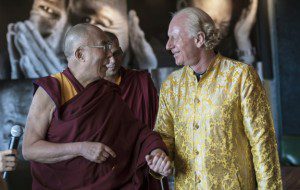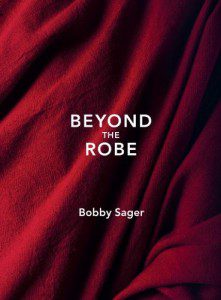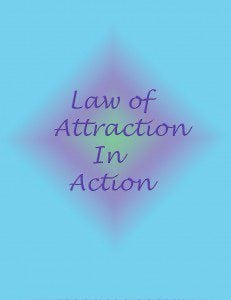 I’m a big believer in giving back in ways that help people. So many people in the world need help. That’s why I was thrilled to have a conversation with Bobby Sager, a businessman who made a fortune by seeing opportunity where others have not. Not just satisfied with working hard to make money, in 2000, Bobby, along with his wife and kids founded the Sager Family Traveling Foundation & Roadshow. They’ve made three-dozen trips and established their own special brand of hands-on philanthropy.
I’m a big believer in giving back in ways that help people. So many people in the world need help. That’s why I was thrilled to have a conversation with Bobby Sager, a businessman who made a fortune by seeing opportunity where others have not. Not just satisfied with working hard to make money, in 2000, Bobby, along with his wife and kids founded the Sager Family Traveling Foundation & Roadshow. They’ve made three-dozen trips and established their own special brand of hands-on philanthropy.
Bobby doesn’t believe in handouts With everything he does, people would be surprised to hear him say he doesn’t give charity.Instead his philanthropy uses business principles and business accountability, whether it’s fostering entrepreneurship in Rwanda and Palestine, training teachers in Pakistan, or a leadership program for Tibetan monks. And in addition to all of that, Bobby and his foundation put together the Science for Monks program at the request of the Dalai Lama. So I had to talk to him about.
About fourteen years ago His Holiness the Dalai Lama told Bobby about his idea of monks and nuns studying science. His Holiness wanted to bring the study of science into the monasteries and this would be the first time in their fifteen hundred year history that Western type science would be taught there. Bobby says, “His Holiness said it was very important to have a 2-way conversation with scientists and Tibetan Buddhism and how the two connect. He said he was trying to provide enough science and a well-rounded education to the monks and have their wisdom more accessible. When young people living in the di Astra (the Tibetan refugee community) are being exposed to and meet a monk, they may be more likely to listen to one who knows science and wants to explain to them about Buddhism.”
Monks who know science come across as more connected, well-rounded and tuned in. His Holiness and Bobby have been a team to accomplish this from the beginning. They provide the resources, the facilities, lodgings and logistics between the monasteries and Bobby’s foundation brings the resources from American universities to both teach and develop the curriculum.
Bobby ’s latest book, Beyond the Robe, tells the story of the decade long development of the Science for Monks program. It gives you a good look at the larger role Tibetan Buddhist monks and nuns can play in their monasteries, communities, and in the world at large. The book is a collection of essays from the monks and scientists giving the first insights that have come out of this historic effort. Beyond the Robe follows the monks’ study of science, highlighted by what the study of science revealed about who these remarkable men and woman really are and the much bigger role that they seem so suited to fill.
I asked Bobbby why he thought it was important to document this. He said, “The book is the insights that we have gotten to the critical masses. My experience has been that everybody admires monks and nuns, mostly from afar. And we have all these preconceived notions that they’re all kind of smiling, chanting, and cross-legged. The reality is there are just as many varieties of personality, ability, and energy in the monastic community as in a typical university. What I have found from being with them for all these years is they’re very dynamic people. As I say in the book, ‘Instead of admiring them from afar, let’s get close enough to listen.’ It’s about stripping away some of our preconceived notions. For example, there’s an idea that a monastery a place to go to sort of escape from the world when instead it’s a place to go to tune up.”
Bobby made it clear from the beginning that he needs to be hands on for any opportunities he gets involved in,. He explained, “My ability is an important part of the currency. I can insert myself into something, create a new program and hire the right people, hold people accountable and go through all the iterations you need to go through when you’re creating new programs. It needed to pass that filter because I’m not just someone who writes checks and stands back and lets it happen. That’s what I’ve done for the last 12-13 years now.” When Bobby backs a project, it’s not just with money. He brings his know-how to the table and makes sure the people he’s helping are ready to work hard too.
Fro the Science for Monks program, Bobby stayed at the monasteries and participated in the development of the curriculum and resourcing the teachers and the development of the translations of various scientific books, videos and other things. In his book, The Power of the Invisible Sun, Bobby explains how to make yourself the currency and how the idea of just writing a check leaves so much value on the table. He says, “People always say you get more out of giving and in this case it’s sort of true on steroids. Living amongst the monks and developing friendships is in business parlance my return on investment—the impact that I make on this program and the monks and also on myself and my family by being exposed so intimately to this special group of people and to this tradition. It’s a very important part of why I’m so devoted to it.”
Bobby advises, “Be selfish. Go help someone.” It nourished him and his family. He likes knowing hat he’s made a difference in the lives of other people. He believes that making a difference in the lives of others only matters if it’s sustainable and it won’t be if you’re just doing it because you’re supposed to, since that stuff run out. If it nourishes you and helps you learn more, feel more and be more you you‘ll want to do it all the time.
Bobby says he doesn’t give charity. He wants to help people to help themselves. I asked if he believed in the saying, “Give a man a fish and you feed him for a day. Teach a man to fish and you feed him for a lifetime.” He explains, “We take it a step further. The problem is that if you give him a fishing pole, all he can do is eat fish. We, in one form or another are teaching people how to catch and sell the fish.” For example one of their initiatives is Hands Up Not hands Out, founded by Bobby’s daughter Tess. They make it make it possible for 300 women from Rwanda and Palestine to sell their handmade jewelry. The organization helps the women make and sell the jewelry to high-end stores!
In Rwanda they make colorful earrings out of sweet grass, which they made baskets from. One amazing aspect of that program is it brings widows whose husbands were murdered in the genocide together with wives of men in prison because they committed murder. They work together for business because it’s in their best interests. They have reconciliation by making money together and it strips away the prejudices.
Bobby Sager i an inspiration to all of us. He takes giving back to the extreme. Check out the Science for Monks program in Beyond the Robe.
Please leave comments under my posts so we can stay connected.

